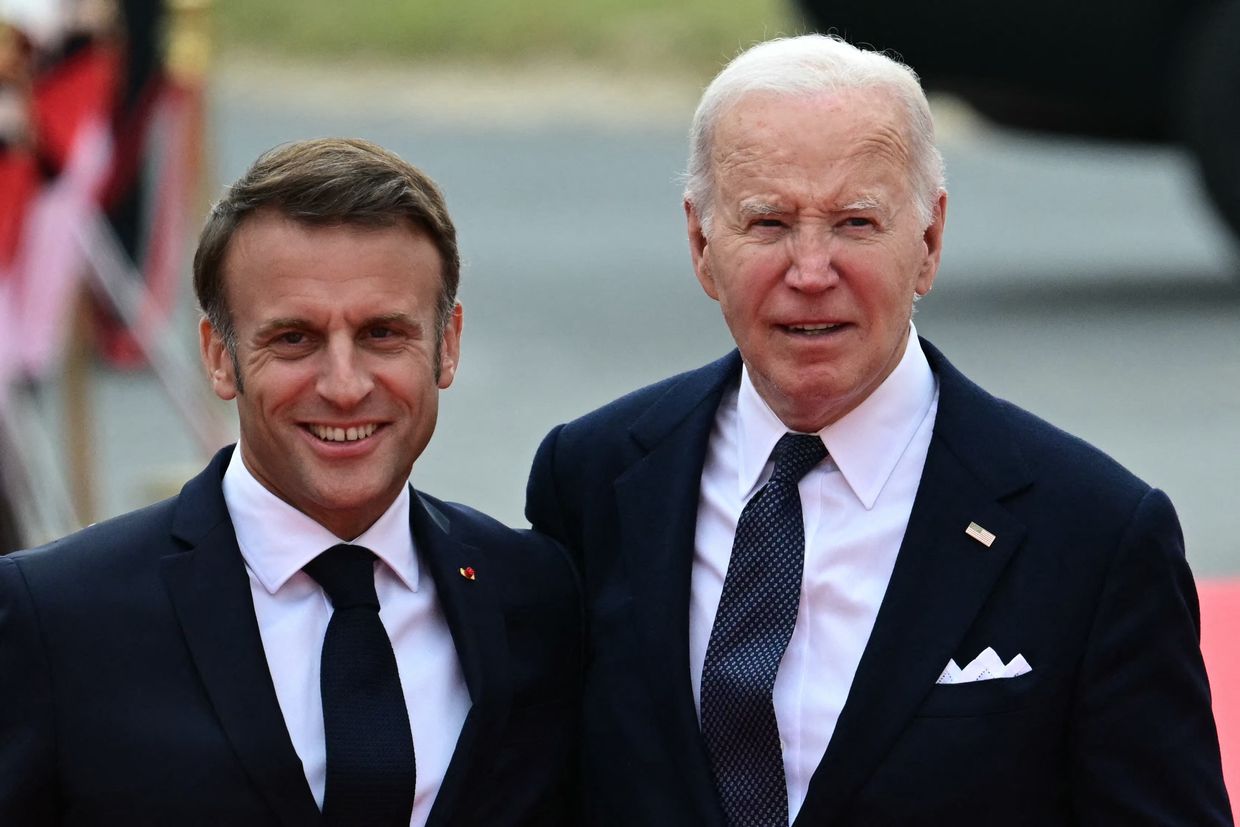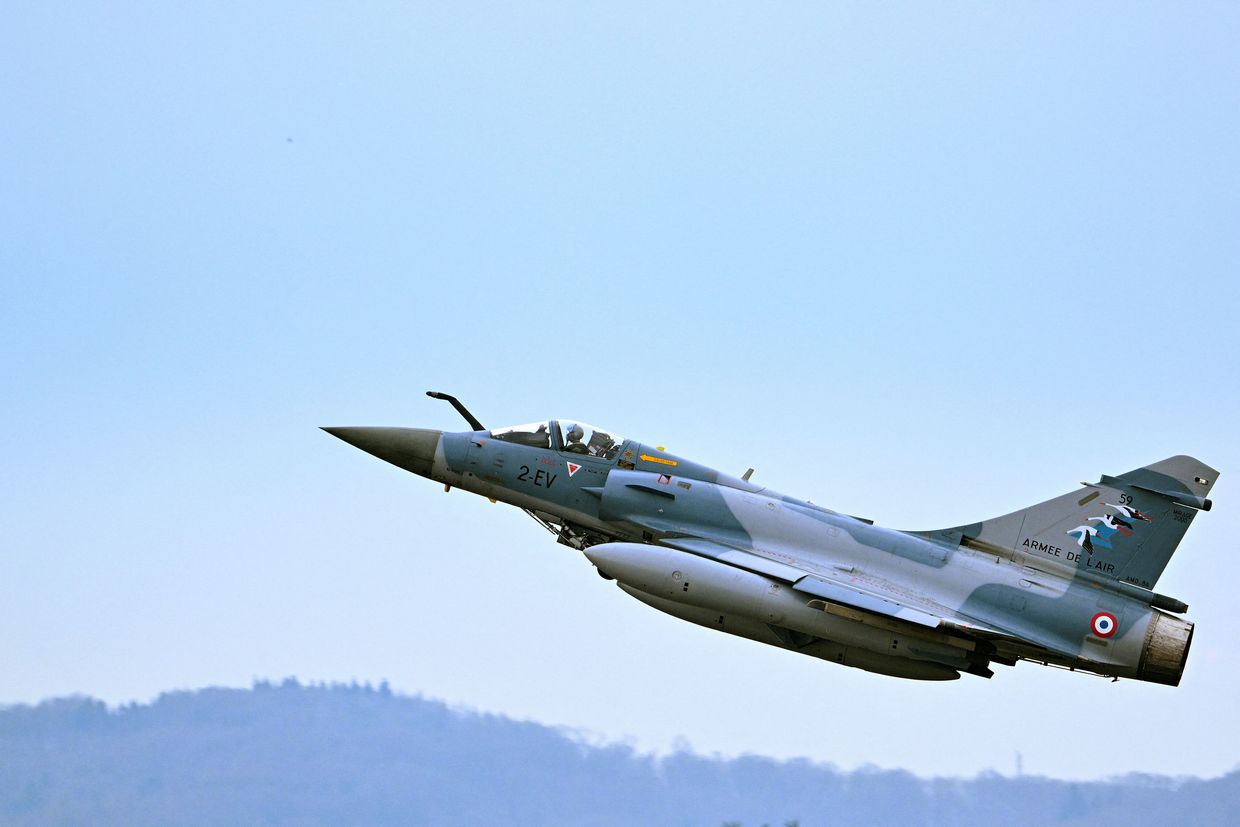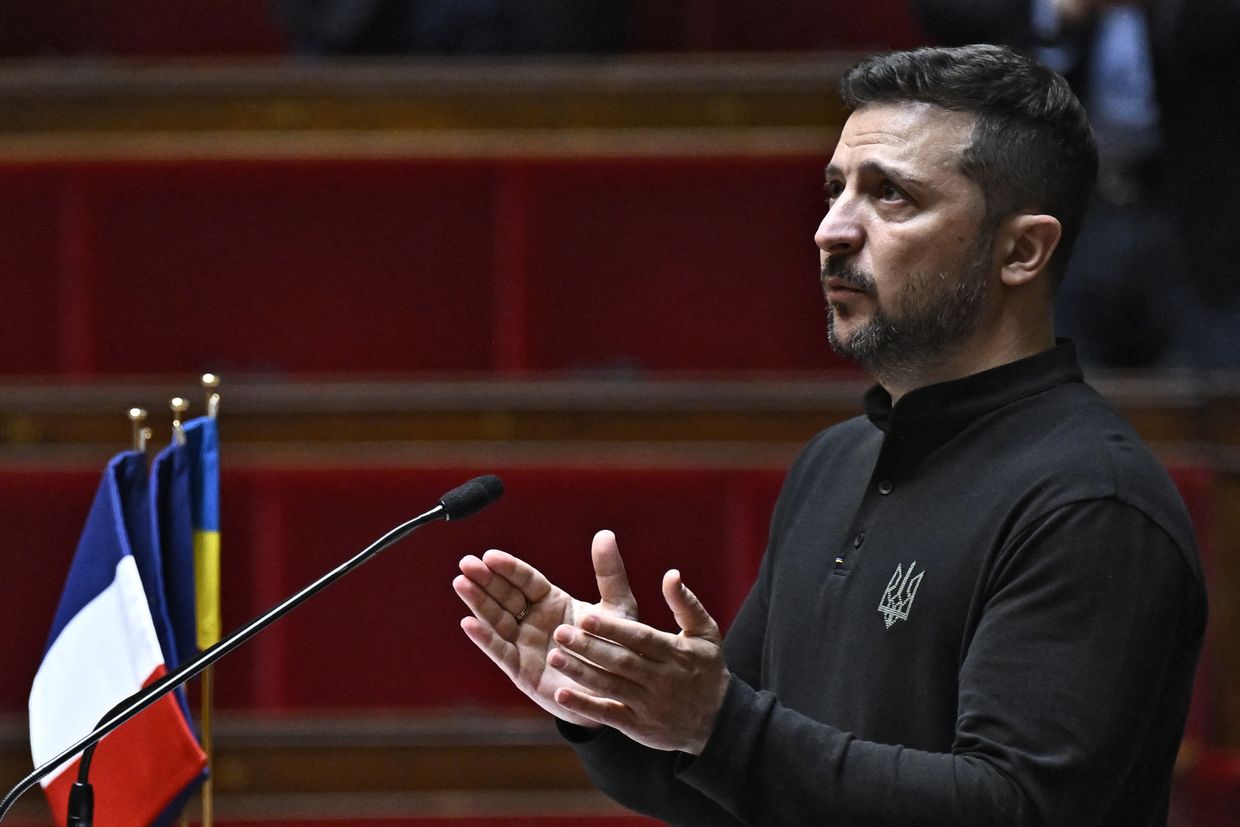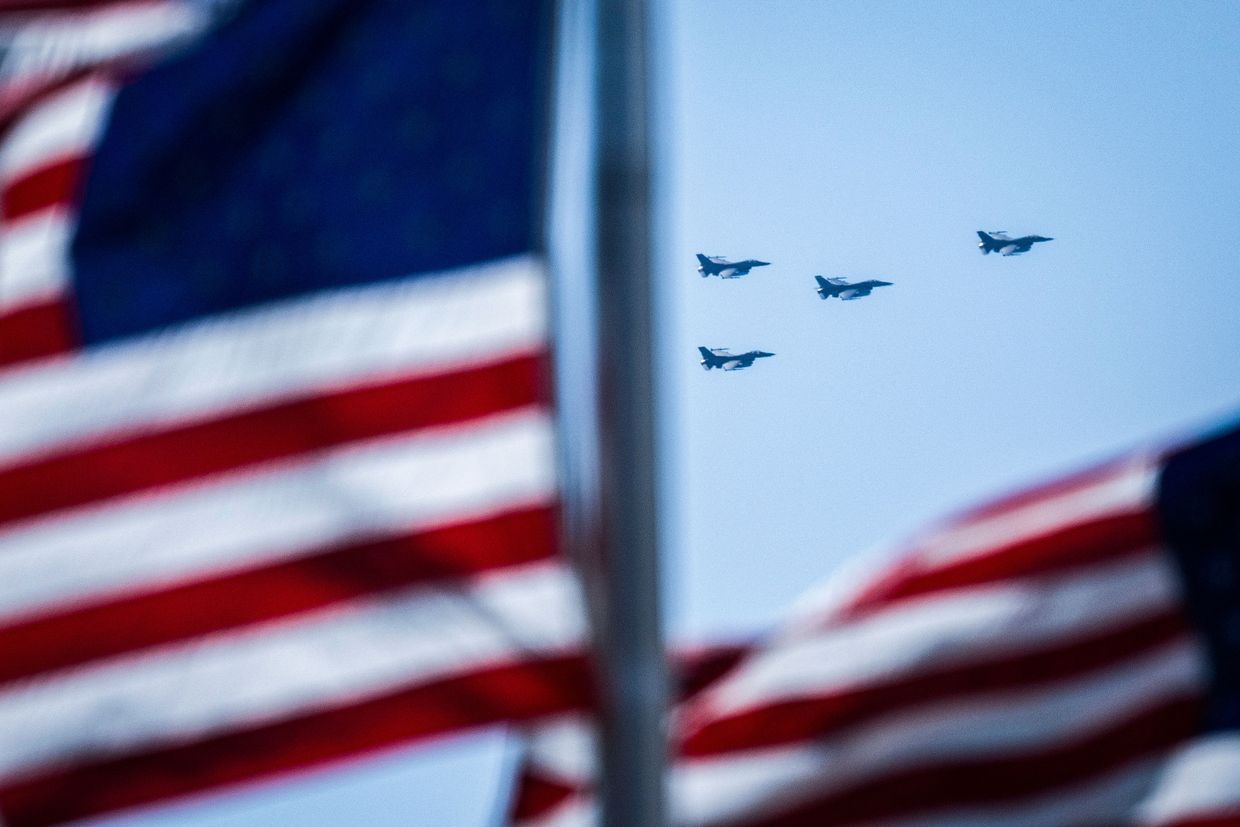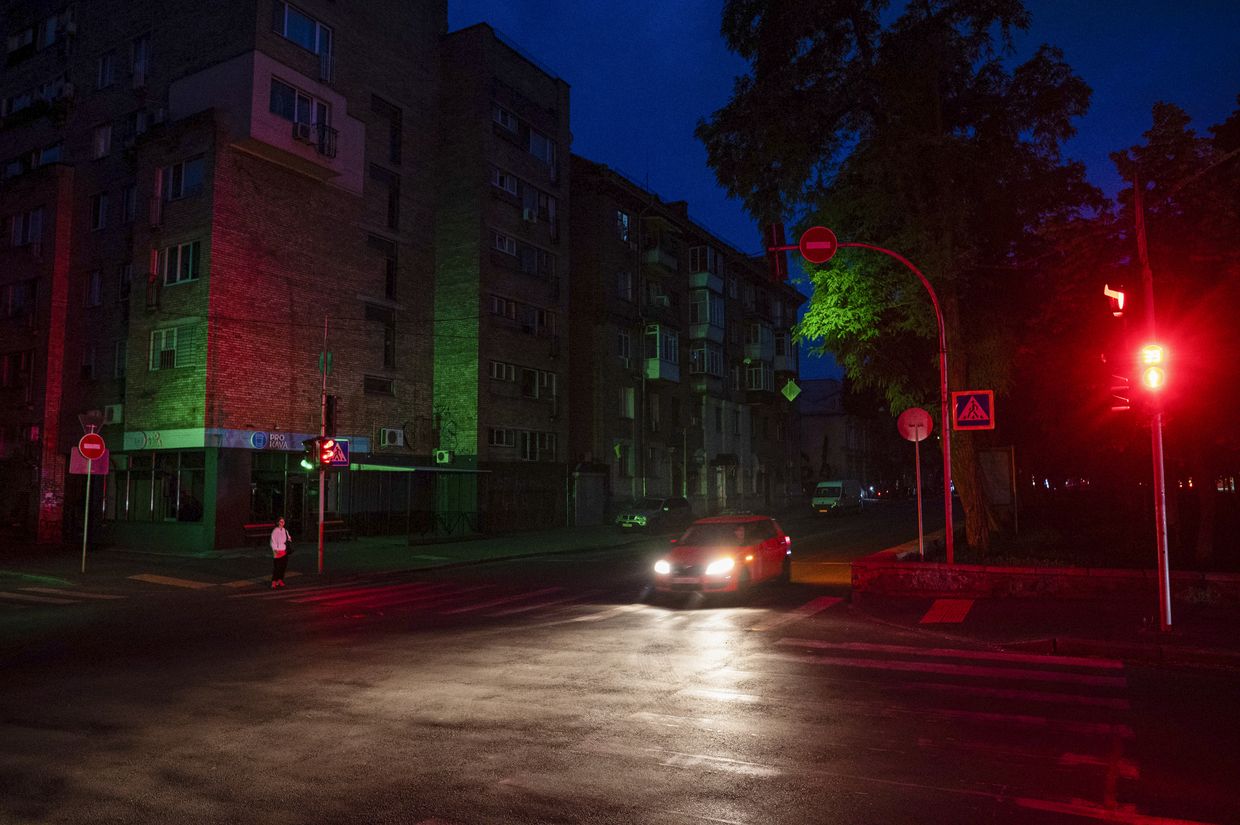Ukraine war latest: US announces $225 million aid package; France looks for partners to send military instructors
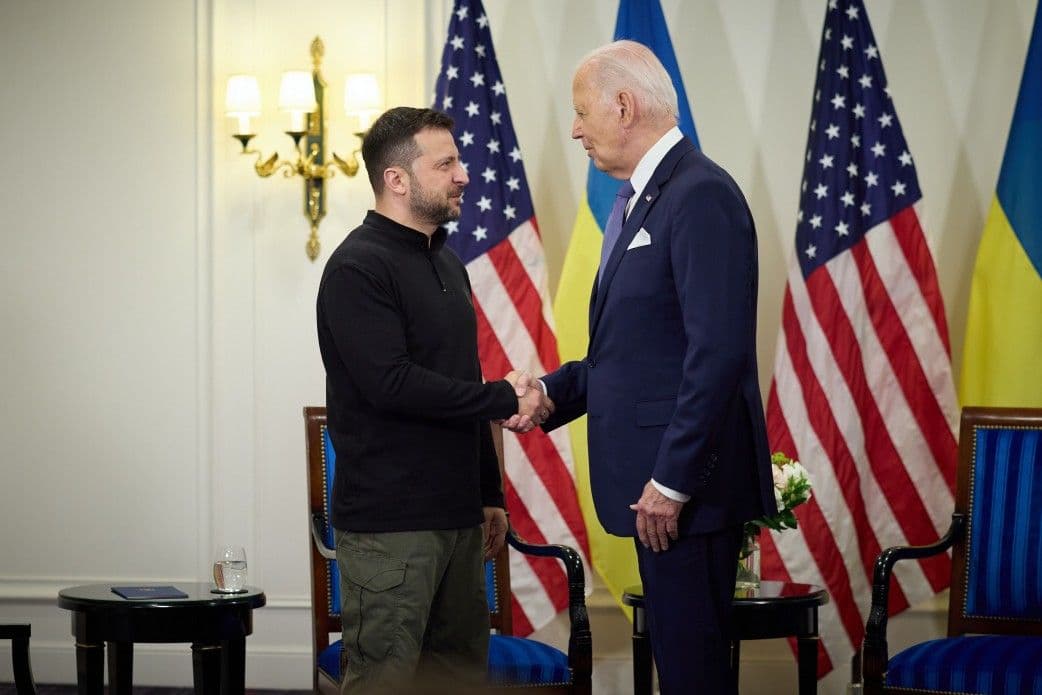
Key developments on June 7:
- Biden announces $225 million aid package for Ukraine
- Macron: France to finalize coalition to send military instructors to Ukraine
- Producer of Caesar howitzers to set up branch in Ukraine
- Netherlands to invest $436 million to make armored vehicles for Ukraine
- Russia hit 2 oil depots overnight, Ukraine's company says
U.S. President Joe Biden announced an aid package for Ukraine worth $225 million during a meeting with his Ukrainian counterpart, Volodymyr Zelensky, in Paris on June 7.
Zelensky thanked Biden for the newly pledged assistance during the talks, which were also attended by U.S. Secretary of State Antony Blinken and Defense Secretary Lloyd Austin.
"Since (April), including today, I've announced six packages of significant funding. Today I'm also signing an additional package for $225 million to help you reconstruct the electric grid," Biden said.
Biden did not specify how much of the package would be allocated to non-military needs, as the U.S. Defense Department also unveiled a military aid package, including HAWK medium-range air defense systems, 155 mm howitzers, 81 mm mortars, artillery shells, HIMARS ammunition, Stinger missiles, Javelin and AT-4 anti-tank launchers, armored vehicles, patrol boats, and other aid as part of the $225 million package.
The U.S. president apologized to Zelensky for the delays in the $61 billion U.S. foreign aid package, which was stalled in Congress for six months due to opposition from a fraction of the Republican Party.
"You know, you haven't bowed down, you haven't yielded at all, you continue to fight in a way that is just remarkable, is just remarkable—and we’re not going to walk away from you," Biden told Zelensky.
The two presidents met while visiting France for the 80th D-Day anniversary commemorations.
Macron: France to finalize coalition to send military instructors to Ukraine
France wants to finalize a coalition of countries to send military instructors to Ukraine, French President Emmanuel Macron said on June 7 during a joint press conference with Zelensky.
Ukraine is ramping up mobilization, and it would be "more effective and practical" to train "thousands of new soldiers" on Ukrainian soil, Macron said.
"We are not at war with Russia, we do not want an escalation, but we want to do everything we can to help Ukraine resist. Is it an escalation when Ukraine asks us to train mobilized soldiers on its sovereign soil? No,” Macron said.
A number of allies have already agreed to join the Paris-led coalition, he said.
"We already know that we will not be alone, and we will use the next few days to organize a broader coalition to respond to Ukraine's request," he added.
France is reportedly planning to initially send a limited number of personnel to assess the modalities of a mission before involving several hundred trainers, Reuters reported on May 30, citing two unnamed diplomats.
Zelensky said that Kyiv supports Macron's initiative to send instructors to Ukraine.
"This (move) simply shortens the path for training," the president added.
Paris will allocate 200 million euros ($216 million) to companies that will invest in the restoration of Ukraine's critical infrastructure, with 60 million euros ($64 million) of these funds to be devoted to the country's energy sector, according to Macron.
The French president did not specify the number of Mirage 2000-5 fighter jets that Paris will transfer to Ukraine, but announced a training program for Ukrainian pilots.
"Now the priority is to start forming (groups) of pilots and mechanics (for training). This is something that will be launched in just a few days. We are talking about technical training,” Macron said.
Ukraine's president arrived in France on June 6 for the commemorations of the 80th anniversary of D-Day in Normandy, together with U.S. President Joe Biden, Canadian Prime Minister Justin Trudeau, and British Prime Minister Rishi Sunak.
In late February, Macron announced a coalition to send long-range missiles to Kyiv. He is one of the leaders who recently supported Ukraine's right to strike on military bases inside Russia with Western weapons.
Producer of Caesar howitzers to set up branch in Ukraine
European arms company KNDS announced on June 7 the establishment of a branch in Ukraine, the French TV channel BFM reported.
KNDS produces Leopard tanks and Caesar self-propelled howitzers, both of which Kyiv has in service, and other military vehicles. It is headquartered in Amsterdam and owned by German and French arms producers.
Representatives of Ukrainian and French companies signed an agreement to set up an ammunition production facility under a KNDS license during President Volodymyr Zelensky's visit to Paris on June 6-7.
He visited France's Defense Ministry and discussed Ukraine's defense needs, according to the President's Office.
“It is important to expand joint arms production in our country,” the president said.
Kyiv and Paris signed documents to establish a service and repair center for KNDS equipment in Ukraine and to use 3D printing technology to manufacture spare parts for equipment, Zelensky said.
Netherlands to invest $436 million to make armored vehicles for Ukraine
The Netherlands will invest 400 million euros ($436 million) into a Swedish fund to produce infantry fighting vehicles for Ukraine, Dutch media reported on June 7.
According to De Telegraaf, the announcement is part of a wider action plan aimed at scaling up the country's defense industry.
The report did not specify the type of infantry fighting vehicle, but Ukraine and Sweden last year signed an agreement to start jointly producing the CV90, considered one of the best of its type in the world.
Sweden has previously given Ukraine a variety of advanced military equipment, including the CV90 and the Archer self-propelled howitzer.
Its latest package for Ukraine – the country's largest tranche of military assistance since the beginning of the full-scale invasion – also contained the "entire Swedish stock" of Pansarbandvagn 302 infantry fighting vehicles.
Elsewhere, the Netherlands plans to start delivering its F-16 fighter jets to Ukraine this autumn after Denmark begins transferring its aircraft already in the summer, Dutch Defense Minister Kajsa Ollongren said in May.
Later that month, Dutch Foreign Minister Hanke Bruins Slot said the country would not object to Ukraine using Dutch-supplied F-16 fighter jets to strike targets inside Russia as a means of self-defense.
"If you have the right to self-defense, there are no borders for the use of weapons. This is a general principle," she said at an informal meeting of NATO foreign ministers in Prague.
Russia reportedly hit 2 Ukraine's oil depots overnight
Russian troops hit two oil depots during a large-scale drone and missile attack on Ukraine overnight on June 7, said Serhii Kuyun, head of a Kyiv-based A95 consulting group.
Ukrainian forces reportedly downed 48 of the 53 Shahed-type drones and all five Kh-101 cruise missiles at night, causing a fire at one of the industrial facilities in Kyiv Oblast. No casualties were reported.
"Minus two oil depots. Millions of dollars in the air," Kuyun wrote on Facebook, without disclosing where the impacted facilities were located.
Ukrainian officials did not comment on this statement.
Russia has already attacked 10 oil storage in 2024, according to Kuyun. He said that such attacks would not affect the availability of fuel in Ukraine.
Russia intensified its attacks against Ukraine's critical infrastructure in the spring as part of a renewed assault against the country's energy grid, with several power plants being destroyed or disabled.
Ukraine began implementing rolling shutdowns in mid-May, but they have dramatically increased in recent days, and one of the latest Russian mass-missile attack on May 31 caused further damage across the country.



